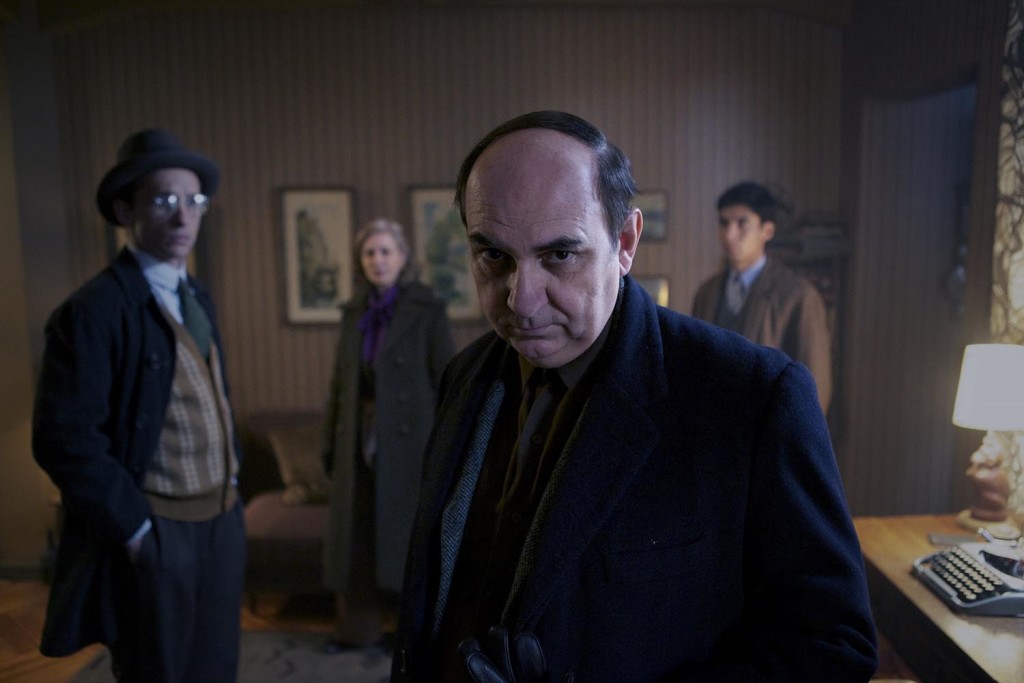Coming just two weeks after the end of the 2016 Toronto Film Festival, the 35th Vancouver International Film Festival (September 29th – October 14th) boasts an impressive lineup, showcasing a huge number of world cinema’s major titles (including some, such as Alain Guiraudie’s Staying Vertical and Eugene Green’s Son of Joseph, that skipped TIFF) in addition to its typically strong Dragons & Tigers program, dedicated to East Asian cinema (which this year includes Wang Bing’s refugee documentary Ta’ang and Hong Sang-soo’s Yourself and Yours). The festival’s offerings of Canadian film, which range from local British Columbia productions to major titles from across the country, also include Future // Present, a new program curated by critic and programmer Adam Cook that puts a spotlight on distinctive, emerging voices in Canadian cinema. This dispatch (the first of three) will look at titles from each of the festival’s diverse sections (save Future // Present, which will be covered in a separate piece), including Pablo Larrain’s “anti-biopic” Neruda, Akihiko Shiota’s Lifeline (his second film this year, following Locarno’s Wet Woman in the Wind), and Kevan Funk’s B.C.-set Hello Destroyer.
To kick off the festival, there are perhaps few more fitting titles than Alison Maclean’s long-awaited follow-up to her 1999 film Jesus’ Son. An adaption of a novel by Eleanor Catton, The Rehearsal mainly follows a young actor named Stanley (James Rolleston) as he enters a prestigious drama school run by the exacting institute head, Hannah (Kerry Fox), and begins a relationship with Isolde (Ella Edward), whose 15 year-old sister is embroiled in a local sex scandal with her tennis coach. Early scenes (largely set at the institute) are productively rambling and digressive, making effective use of jarring (comic) cuts, contrapuntal sound and negative compositional space to obscure predictable dramatic beats. The film eventually converges around a year-end performance, for which Stanley’s group decides to take the statutory rape scandal as their subject—a choice that naturally complicates his relationship with Isolde. It’s not difficult to intuit the rather banal trajectory the film barrels towards, and while Maclean does attempt to buck that expectation with the ending—the group’s culminating performance—The Rehearsal ends up feeling both coy and unsatisfying; the supposed thematic resonance just isn’t there. The students are instructed to, above all, “surprise” the audience; it’s a shame Maclean doesn’t.
Still conventional (at least in a narrative sense) but far more effective is Kevan Funk’s debut feature, Hello Destroyer, which first made waves at TIFF for its unsparing look at the institutionalized violence of professional hockey, that most Canadian of institutions. Set and filmed in Prince George, British Columbia, the film follows a junior hockey enforcer named Tyson (Jared Abrahamson) as he’s exiled by his team and forced to return to his hometown after inflicting a life-threatening hit on an opposing player. Filmed largely in claustrophobic closeups and accompanied by an intense sound design, the film takes a hard look at the strictures and hypocrisy of this hyper-masculine (and particularly Canadian) milieu. Although the film can, at times, feel a touch overdetermined, it’s anchored by Abrahamson’s staggering physical performance and the admirable rigor of Funk’s approach. It’s certainly one of the best B.C. films of recent years, and an impressive debut by any standard.
Although not making his debut, Akihiko Shiota might seem like a new face at VIFF, returning to the festival for the first time in over a decade with Lifeline, a film which critic and programming consultant Tony Rayns describes as “the sparkiest trip to Heartbreak Hotel since Chungking Express.” Given that the film charts a (non-)romance between Ryosuke (Koji Seto), a young man who runs a car dealership inherited from his father, and Shiori (Jun Yoshinaga), a woman literally dropped off in front of his business one day, the comparison isn’t unwarranted. Like Wong’s masterpiece, Lifeline attempts a similar portrait of romantic loneliness and a particularly urban sense of emotional dislocation, limned with various oddball details—Ryosuke’s daily dinner of milk and fried noodles, or Shiori’s multiple visits to the dealership, during which she naps in one of the cars—that wouldn’t be out of place in Chungking Express or Fallen Angels. What the film does lack is anything remotely resembling Wong’s ravishing formal achievement, which becomes increasingly apparent as Lifeline’s quirk-factor grows to borderline-Sundance levels, an impression that’s tempered only by regional specificity and the compelling presence of both leads. There are still some evocative, largely wordless interludes, but the overall trajectory is neither fresh nor interesting enough to sustain even the brisk 69-minute runtime. To be fair, though, comparing any film to Chungking Express is bound to result in disappointment.
Pablo Larrain’s conceptually bold Neruda, on the other hand, is far from a letdown (though it may have been overshadowed by the recent premiere of the director’s other new film, Jackie). Focusing on a period that begins in 1948, during which Chilean poet and Nobel laureate Pablo Neruda was declared an enemy of the state and threatened with arrest, the film refashions the historical events as a thrilling cat-and-mouse chase between police prefect Oscar Peluchonneau (Gael García Bernal) and Neruda (Luis Gnecco). Throughout, Larrain cranks up the stylistic artifice to a potentially headache-inducing degree, using lens flares, murky compositions of silhouette and shadow, and rapidly shifting camera angles to present the “historical” events in the most dramatic possible light. Aided by Pelochonneau’s incessant voiceover, it quickly becomes clear that the film’s subject is its very writing, the police prefect himself being a dramatic construct. (“Am I fiction?” he asks Neruda’s wife at one point.) Circumventing stale biopic conventions, the film is both an ironic creation and wry deconstruction of history, myth and legend, one that calls attention to its artifice at every turn. It’s an inspired conceit, and for those on its very specific wavelength, it’s also utterly hilarious, using both its metatextual trappings and García Bernal’s cannily self-effacing performance to maximum effect. (The finale, in its blatant disjunction between image and text, is particularly brilliant—like the showdown of a Western reframed by one-sided delusion.) Neruda is a film that places as much weight on a comic pause before “…of Chile” (whenever Pelochonneau recites his full title) as on the purported real-life particulars of Neruda’s escape. The overall conceit does sacrifice some dramatic heft and political resonance to maintain its playfulness, but that seems a small price compared to the staid alternative. Pelochonneau may be made up, but Neruda has a very real pulse, which is more than can be said for most biopics.
Wayne Wang’s While the Women Are Sleeping is certain to get an audience’s collective pulse racing, at least intermittently. Taking place largely at a luxurious beach resort, the film centers on Kenji (Beat Takeshi), a successful novelist who hasn’t written anything since his second book; he’s vacationing with his wife, Aya (Sayuri Oyamada), a working editor. Though this initially seems like a generic writer’s ennui story, Women quickly morphs into something far creepier when Kenji becomes obsessed with a strange pair of guests at the resort—an older gentleman and his gorgeous, much-younger companion (who is neither his wife nor family relation)—and with with the man’s nightly ritual of filming the girl as she sleeps, sometimes shaving the nape of her neck with a razor. The concept has an inherently disturbing potency, which Wang does well by in the early going, alternating between the sun-drenched languor of the resort and a palpable danger that lies just beneath; he understands that the mere suggestion of horror and taboo can be far more unsettling than its explicit depiction. Mostly sticking to Kenji’s perspective, the film becomes increasingly unhinged, both formally and narratively, the porous border between the real and imagined progressively getting thinner and thinner. Problem is, after a certain point, things become so muddled that the specifics of plot lose their heft, leaving only a swirl of thematic ideas that numerous films from Hitchcock to Haneke have dealt with far better. While the Women Are Sleeping ends on a note of pat predictability, which is all the more disappointing given the promise of those early scenes; perhaps mere suggestion isn’t enough, after all.









